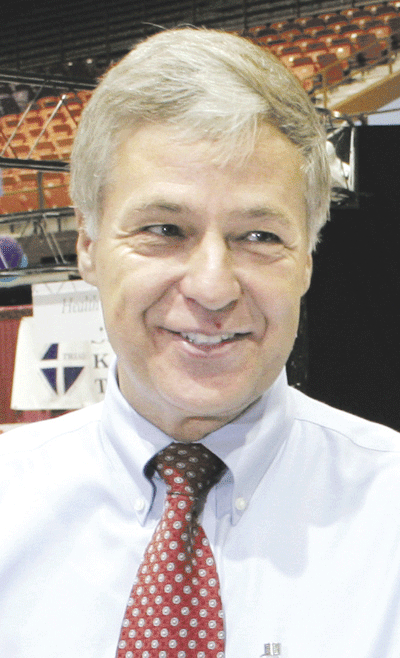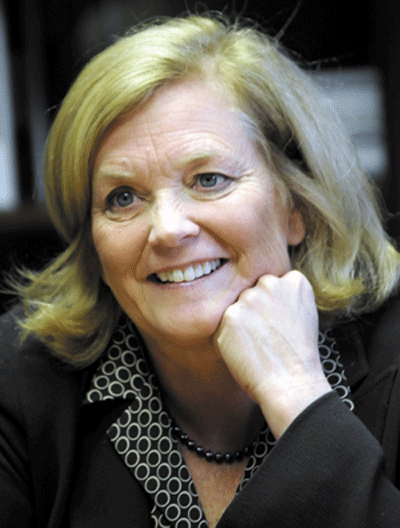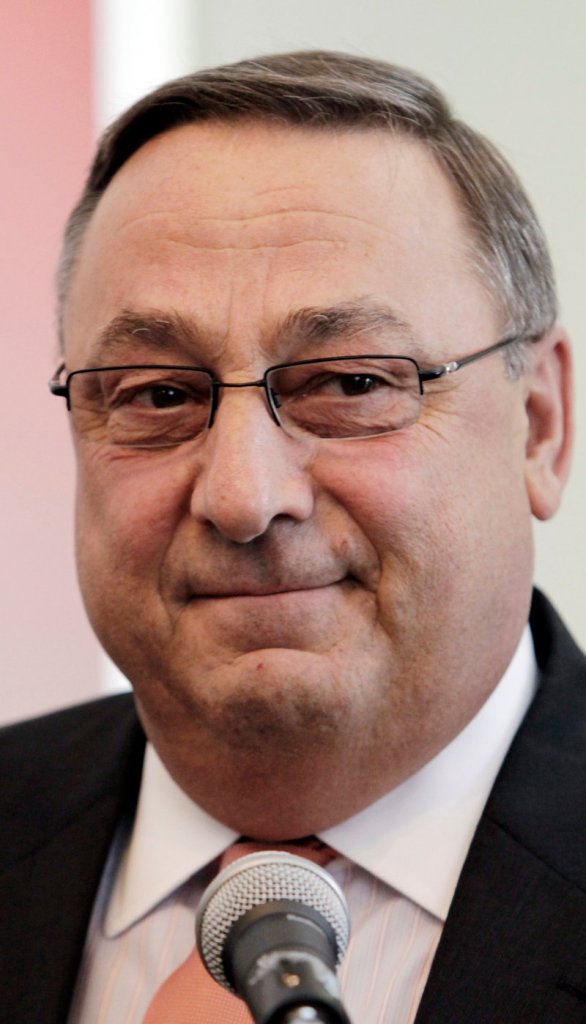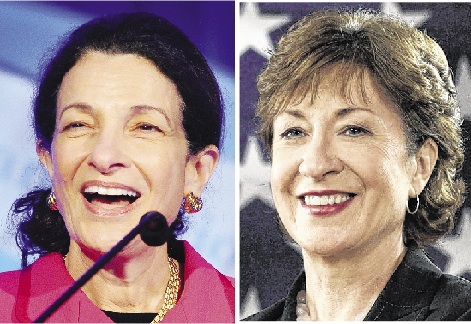AUGUSTA — Of the state’s five highest elected officials, only two will say whether they support or oppose the gay-marriage ballot question.
On Tuesday, voters will head to the polls to decide whether Maine should join six other states and the District of Columbia in allowing gay couples to get married.
Maine is one of four states voting on the issue this fall. Maryland and Washington voters will decide whether to uphold laws passed by their legislatures to allow gay marriage, and Minnesotans will consider a constitutional amendment to ban it.
U.S. Rep. Chellie Pingree, D-1st District, is a long-time supporter of gay marriage, and Rep. Mike Michaud, D-2nd District, plans to vote in favor of the state’s referendum, according to spokesmen for the representatives.
But the state’s two Republican U.S senators say they don’t take public positions on state-level ballot questions. Gov. Paul LePage’s spokeswoman declined to comment.
“It is left to individual states through the legislature or referenda to make their own determinations on this personal issue, and the people of Maine will now make this final determination come Election Day,” said Republican Sen. Olympia Snowe in a statement issued by her spokesman, Brandon Bouchard.
Republican Sen. Susan Collins, like Snowe, does not take public positions on state-level referenda, said spokesman Kevin Kelley.
“In my years serving Maine in the United States Senate, I have never expressed a position on a state referendum question because it is a matter of state, not federal, law, and the people of Maine can cast their votes directly rather than relying on their representatives,” Collins said in a statement.
“Historically, laws regulating family and domestic affairs have been almost exclusively regulated by the states, which is why I have voted against federal constitutional amendments defining marriage,” she said. “It is up to the voters of Maine to decide how marriage should be treated under Maine law and, like the voters, I am considering this issue very carefully.”
Collins, who has supported other gay issues at the national level, is not up for re-election this year. If she chooses to run again, she’ll be back on the ballot in 2014.
Marvin Druker, a political science professor at the University of Southern Maine Lewiston Auburn campus, said voters don’t necessarily look to the congressional delegation when trying to decide this type of state-level issue. But they may be curious to know where the delegation stands on gay rights, particularly since the federal Defense of Marriage Act is likely to be considered by the Supreme Court next year.
And with regard to Snowe, who is not running for reelection and presumably has the least to lose by taking a public stand, Druker said she may be thinking of her future plans. Snowe has said she wants to do some sort of work to help increase the level of bipartisanship in Washington after she retires.
“There’s no reason to antagonize anybody,” he said.
Two of the three major candidates who are running to replace Snowe support gay marriage. Independent Angus King, who served as governor from 1995 to 2003, and state Sen. Cynthia Dill, D-Cape Elizabeth, both support same-sex marriage, while Republican Charlie Summers, Maine’s Secretary of State, opposes it.
Gay-marriage advocates say they have approached all members of the delegation to seek their support — particularly Snowe and Collins.
“We are actively looking to recruit Republicans,” said David Farmer, spokesman for Mainers United for Marriage, the primary group promoting the ballot question. “We would love to have their support if they were willing to offer it.”
Carroll Conley of Protect Marriage Maine, the lead group that opposes the same-sex marriage ballot question, said they have not approached any members of the delegation on the issue. “We haven’t even courted them,” he said.
When he ran for governor in 2010, LePage said he opposed same-sex marriage but supported some legal measures to protect couples in committed relationships. But the governor won’t take a stance this time around.
“I politely decline to offer comment on behalf of the governor,” spokeswoman Adrienne Bennett said in an email. “However, I thank you for the inquiry.”
LePage, a Republican up for re-election in 2014, told the Lewiston Sun Journal in October 2010 that if he were governor when a gay marriage bill came through, he would veto it. He said the issue should be decided by voters and that he had no personal opinion on the matter.
“I have brothers who are gay and I’m closer to them than some that aren’t,” he told the Sun Journal. “I have a lot of friends that have been gay. Each to their own. People do what they want to do.”
Michaud is running for re-election against Maine Senate President Kevin Raye, a Republican who opposes same-sex marriage. And while Michaud said in a statement that he too believes marriage is a state-level issue, he made it clear he supports the ballot question.
“I have always believed that marriage is an issue that should best be handled at the state level,” Michaud said in the statement. “That said, Question 1 in Maine protects both personal and religious freedom, and I will be voting yes.”
Pingree faces state Sen. Jonathan Courtney, R-Springvale, in a re-election battle. Courtney opposes same-sex marriage.
Pingree is married to Donald Sussman, majority owner of MaineToday Media, which owns the Maine Sunday Telegram, Portland Press Herald, Kennebec Journal and Morning Sentinel. Sussman has donated $100,000 to Mainers United for Marriage, according to campaign finance reports.
Pingree spokesman Willy Ritch said a floor speech delivered by Pingree in 2009 after the Maine Legislature voted to allow gay marriage was, at one time, the most viewed YouTube video of Pingree.
Later that year, voters repealed the law 53 percent to 47 percent.
“Chellie has been a longtime and very vocal supporter of it,” Ritch said.
Susan Cover — 621-5643
scover@mainetoday.com
Send questions/comments to the editors.





